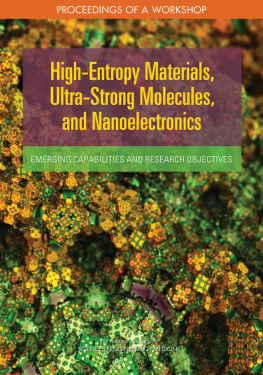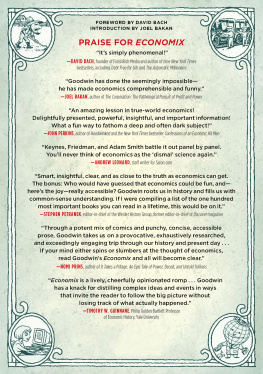1.1 Overview
Doing a doctorate can be one to the most exciting things you will do in your life. This is a chance to do something that is, at the same time, intellectually challenging and massively rewarding. Having a doctorate has the power to create unparalleled life and work opportunities. As one of Australias most senior academics (Professor Brian Anderson FRS from the Australian National University) recently said to Graham
Most people work to live but researchers typically live to work.
Moreover, doing a doctorate can dramatically change your self image. For example, Raheleh Nazari, who recently completed her doctorate in engineering, said The doctoral program was a total life changing experience. It changed my complete personality. I became wiser, more patient and more able to focus on the important things in life. I now have a completely different image of myself and my capacity to contribute.
If you seek further affirmation of the capacity of research to be a positive force in your life, then you may care to quickly read Sect. of the book.
Of course, doing a doctorate is an important decision. Thus it helps to have full knowledge of the steps needed to get a doctorate and the doors that will open if you have a doctorate.
In this context, this chapter is intended to give you guidance during your decision-making process. By the end of this chapter you should have arrived at a tentative indication of whether a doctorate is the best course of action for you or whether you might be better served by creating a career without a doctorate. Either of these can be a great choice depending upon your individual circumstances. Subsequent chapters will substantiate your initial decision by providing information about the process of doing a doctorate and career opportunities.
1.2 Reasons for Doing a Doctorate
There are four principal reasons that, should any of them apply to you, would suggest that a doctorate is the right course of action for you. These reasons are discussed below.
1.2.1 You Are Planning a Career that Requires a Doctorate Qualification
There are many jobs for which a doctorate is a necessary qualification. Examples in the private sector include employment in the research and development wing of a large corporation or becoming a high-level advisor. Examples in the government sector include tertiary education positions or government research organizations. If your interests lie in these areas, then you would pursue a doctorate as a necessary job requirement. To confirm your decision, it is a good idea to check job announcements in your area of interest or talk to friends who already have the kind of position in which you are interested.
The following comment was made by Dr. Torbjrn Wigren (Torbjrn is a senior engineer at Ericsson AB in Sweden. He also holds an Adjunct Professorship at Uppsala University).
My career goal was to obtain a challenging engineering position that focused on design and innovation rather than on simple implementation of the ideas of others. To achieve this in Sweden I knew that I needed to have a doctorate so I went about obtaining one.
1.2.2 You Are Fascinated by One or More Fields in Engineering or Science
If you are fascinated by exciting developments such as mobile telecommunications or biomedical engineering and you want to participate in the associated innovation process, then a doctorate may be the right course for you. For example, we know a student who was fascinated with sustainable energy vehicles and this motivated him to do a doctorate in a closely aligned field. Actually, this particular student grew up in Australia and did his honours degree at the University of Melbourne but he decided that the best place for him to pursue his specific dream was in Germany. So he left Australia to do his doctoral work overseas.
You will know that you fall into this category if a particular area of science or technology captures your imagination and interest.
Examples could arise across a broad spectrum including topics such as transportation, telecommunications, computing, medical instrumentation, geoscience; indeed any area of science or technology.
1.2.3 You Are Interested in Science, Technology or Mathematics Just for the Sake of It
You will know if you belong to this category if, by your inner nature, you always seek to understand science at a deep level. As one of our doctoral students recently said, I was totally fascinated by the topic and was driven to delve more deeply into it. People in this category typically enjoy the sheer elegance of results, love reading popular books on science and enjoy the beauty of mathematical proofs.
For people in this category,
Research can be an ultimate expression of self, similar to painting or performing and composing music.
If this applies to you, then we recommend that you have the courage to pursue your dream without necessarily worrying about the immediate applicability of the work.
1.2.4 You Want to Prove to Yourself that You Can Achieve the Highest Possible Academic Qualification
Many people enjoy studying and are highly successful at doing it. They may thus feel that the progression on to a doctorate is a natural course for them. This can also be aided and supported by family encouragement.
As an example, we quote the experience of Dr. Roger Davies. Roger obtained a doctorate in Chemical Engineering from the University of Swansea, in the UK. His first job was in the research section of a Chemical company. From there he moved into senior management roles in Chemical Manufacturing. Roger said My father had a tough upbringing and had a steely determination that all his children would receive the educational opportunities that he had not received. I was so influenced by my fathers zeal that I wanted to achieve as much as I could academically. This translated, in my mind, to achieving a doctoral degree. So I did - and he was so proud.
Roger added, It is likely that many people will pursue a doctorate to prove to themselves, or others, that they can do it. For such people it is also worth focusing on future career options as soon as possible since this may steer the direction of the doctoral studies.











